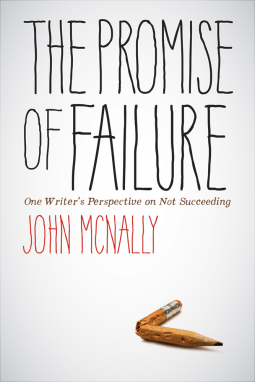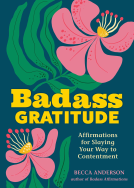
The Promise of Failure
One Writer's Perspective on Not Succeeding
by John McNally
This title was previously available on NetGalley and is now archived.
Send NetGalley books directly to your Kindle or Kindle app
1
To read on a Kindle or Kindle app, please add kindle@netgalley.com as an approved email address to receive files in your Amazon account. Click here for step-by-step instructions.
2
Also find your Kindle email address within your Amazon account, and enter it here.
Pub Date Jun 15 2018 | Archive Date Jun 15 2018
University of Iowa Press | University Of Iowa Press
Talking about this book? Use #ThePromiseOfFailure #NetGalley. More hashtag tips!
Description
The Promise of Failure is part memoir of the writing life, part advice book, and part craft book; sometimes funny, sometimes wrenching, but always honest. McNally uses his own life as a blueprint for the writer’s daily struggles as well as the existential ones, tackling subjects such as when to quit and when to keep going, how to deal with depression, what risking something of yourself means, and ways to reenergize your writing through reinvention.
What McNally illuminates is how rejection, in its best light, is another element of craft, a necessary stage to move the writer from one project to the next, and that it’s best to see rejection and failure on a life-long continuum so that you can see the interconnectedness between failure and success, rather than focusing on failure as a measure of self-worth. As brutally candid as McNally can sometimes be, The Promise of Failure is ultimately an inspiring book—never in a Pollyannaish self-help way. McNally approaches the reader as a sympathetic companion with cautionary tales to tell. Written by an author who has as many unpublished books under his belt as published ones, The Promise of Failure is as much for the newcomer as it is for the established writer.
Advance Praise
“The Promise of Failure is a book I’ll be giving to my writing students. Rejection has always been part of every writer’s life, but the writer’s market is now more adversarial than ever before, and John McNally’s precept and example will help them find what it takes to survive in it. This book is both a compendium of good advice and a memoir of the life of a writer willing to try anything—really anything—and to stick with it against any odds. This book isn’t about failure; it’s about never giving up.”—Madison Smartt Bell, author, All Souls’ Rising
“Beside Dillard’s The Writing Life and Gardner’s On Becoming a Novelist, place John McNally’s The Promise of Failure. The book is a gut-funny, bone-honest memoir of the highs and lows (mostly lows) of a life-long writer. Read the book and you’ll learn what to do with all those rejection letters, all that bitterness at the success of other writers (proudly displayed on Facebook), all those abandoned novels and stories, and all those grim moods that make your every word seem stupid. There is a secret ‘yes’ in the negative McNally shows, and a wisdom deep and rare that arises only from suffering. This book, a gorgeously written account of the difficulty of writing, exemplifies that rising.”—Eric G. Wilson, author, Against Happiness
Available Editions
| EDITION | Paperback |
| ISBN | 9781609385750 |
| PRICE | $19.95 (USD) |
| PAGES | 144 |
Links
Average rating from 9 members
Featured Reviews
 Michelle S, Reviewer
Michelle S, Reviewer
“The Promise of Failure” authored by John McNally is an unexpected literary surprise for writers and anyone who loves the written word! This is not a typical “how-to” writing guide for authors; instead, McNally shared his true story of trial and error—the hard work towards success. This involved the bulk of his writing being rejected by commercial publishers. Despite his graduation from the Iowa Writers Workshop (1989) and teaching college level writing courses; his lucky break occurred with a third place win in the Playboy Fiction Contest (1988) and success of his novel, “The Book of Ralph” (2004).
When he was 13 years old, McNally diligently typed his first novel of old time film comedians. He wrote to Universal Studios, MGM, and major publishing houses for any advice they might offer. Soon, his parent’s mailbox was filled with studio and publisher responses. He didn’t have the money for the fees charged, he did receive an autographed photo of Margaret Hamilton (The Wizard of Oz). Though it was “roundly rejected,” Harmony Books asked to see his novel after completion.
As a serious writer, McNally needed a first rate education. After he accepted a low wage adjunct teaching position at a college in Colorado, moving there from Chicago—getting established was very difficult. After only one semester, the adjunct contracts were not renewed. McNally was forced to move back to Illinois and stay in his father’s camping trailer—where he only wrote 30 pages of unusable material during this depressing time period. A good friend, author and scholar Eric G. Wilson believes that great art can be created during periods of melancholia, though one must remain strong in the middle and endure “murkiness and confusion”. The “unrelenting darkness” that led to the fates of the famous writers: Sylvia Plath, Anne Sexton, David Foster Wallace, Ernest Hemingway, Virginia Woolf must be avoided at all costs; self-care should always be a high priority. McNally informs readers that he doesn’t write fiction for therapy. There is a probability that the reader will feel sorry or embarrassed for an author that writes for the purpose of self-healing.
Although McNally had little use for revising or re-working failed novels, he noted that a novel that failed sell in past times, could be accepted for future publication. Pat Conroy (1945-2016) instructed his students that “The good work is connected to the bad work” (1987). Indeed, in writing his short stories McNally often felt like Dr. Frankenstein taking parts from one story and connecting the parts with another. We can work tirelessly on a story or novel-- revising these works can be like “chasing a mirage”. We may never get it right, or gain the distance or understanding to grasp its meaning-- we should let it go. In his 28 year teaching career, McNally has read thousands of student fiction submissions. Many have had no desire to become writers, the ones who did become successful authors, shared an “emotional honesty” an interest in feedback, a “resilience” and “humility” in a likelihood of exposure.
One of the best quotes in the book was by Paddy Chayefsky: “Stop thinking of writing as an art. It is work. If you’re an artist, whatever you do is going to be art. If you’re not an artist, at least you can do a good days work.” During the time he wrote The Book of Ralph, McNally’s second marriage was falling apart. Writing saved his life, preventing him from acting on “darker impulses”. McNally’s stories and advice were written a conversational style and format, there were no long drawn out essays of literary criticism. The ebb and flow of this book was really superb. One of McNally’s best stories that celebrated his friend Christine was saved for the closing. As a book reviewer, author’s who read their reviews and not hesitate to click “Helpful” or click ones they “Like” are most appreciated! **With gratitude and thanks to the University of Iowa Press via NetGalley for the DDC for the purpose of review.








